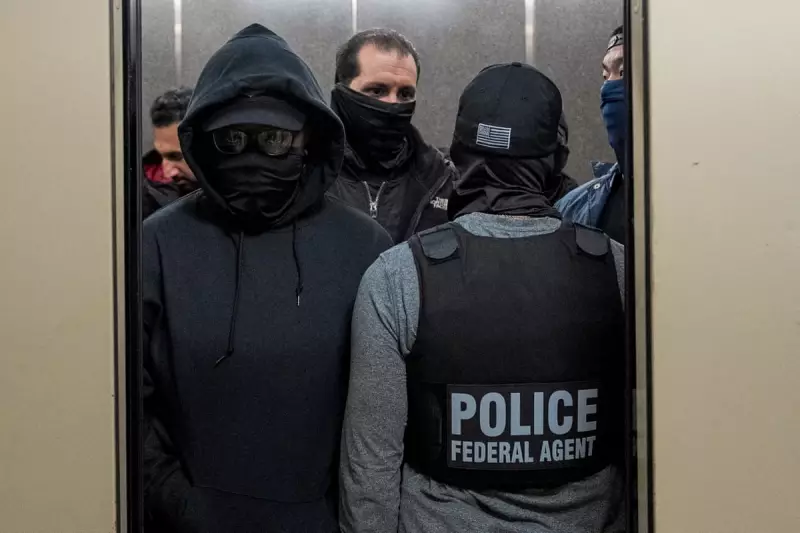
In a significant revelation about government surveillance practices, the FBI has been exposed for monitoring a private Signal group chat used by immigrants' rights activists in New York City. Confidential law enforcement documents obtained by the Guardian show that federal agents accessed conversations within a "courtwatch" Signal group that coordinates volunteer efforts to monitor public proceedings at three federal immigration courts.
Secret Surveillance Operation Revealed
A "joint situational information report" dated 28 August 2025, prepared by the FBI in collaboration with the New York Police Department, contained direct quotations from the encrypted Signal conversations. The document, distributed to law enforcement agencies across the United States, controversially characterised the court watchers as "anarchist violent extremist actors" despite their nonviolent activities.
The records were secured by Property of the People, a government transparency non-profit organisation, through public records requests. The FBI report originated from its New York division and raised immediate concerns about the targeting of lawful activist groups.
How the Surveillance Worked
The FBI document reveals that in late May 2025, an individual participated in a debrief session conducted via a Signal call within the courtwatch group chat. This person discussed strategies to enhance future activities near federal facilities in New York City, specifically mentioning three Manhattan immigration court addresses: 26 Federal Plaza, 201 Varick Street and 290 Broadway.
According to the FBI's summary, conversations included instructions on accessing federal courtrooms, with members being advised which floors to visit and what to tell officials. Suggested statements included phrases like: "I'm due at a 9:30 hearing." The report also noted that collecting media documentation was considered "critical information," including photographs and videos of law enforcement officers showing their badges, faces, names, and license plates.
Signal, the encrypted messaging platform favoured by activists for its security features, typically requires law enforcement to either be included in the chat, receive copies from a participant, or access an unlocked phone to read messages. The FBI described their information source as a "sensitive source with excellent access" but provided no clarification on how they infiltrated the private group.
Context of Court Monitoring Efforts
Activist groups have significantly expanded court observation initiatives in recent months as Immigration and Customs Enforcement (ICE) has increasingly detained immigrants appearing for routine hearings. This practice escalated following an ICE directive issued the day after Donald Trump assumed office in January 2025, which authorised arrests at courthouses—a practice previously restricted under the Biden administration due to concerns about interfering with judicial proceedings.
Throughout 2025, immigration courts across America have repeatedly dismissed immigrants' cases during hearings, enabling federal agents to subsequently arrest them in courthouse hallways. A recent Associated Press investigation suggested the Department of Homeland Security has established "deportation traps" at these courts, with September witnessing a federal officer filmed pushing a woman to the floor at a New York City courthouse, prompting rare criticism from DHS.
Official Responses and Criticism
The FBI declined to comment when presented with detailed questions, while DHS referred inquiries back to the bureau. An NYPD spokesperson distanced the department from the report, stating it was "not an NYPD document." ICE did not respond to requests for comment.
Notably, the FBI memorandum provided no specific evidence supporting its characterisation of court watchers as "anarchist violent extremists" and offered no details about alleged past calls for violence. The court monitoring efforts have remained consistently nonviolent.
Brad Lander, New York City's comptroller—who was himself arrested by ICE in June while accompanying an immigrant in an immigration courthouse—strongly condemned the FBI's actions. "The FBI surveillance tactic is ripped straight out of the J Edgar Hoover playbook," Lander stated, referencing the former FBI director notorious for spying on activists.
Lander emphasised that "observing immigration court hearings is a legal and non-violent act, unlike the ICE abductions we have witnessed regularly for months outside of the courtrooms." He added that courtwatch missions provide transparency and ensure due process, vowing that surveillance would not deter their efforts.
Dr Ryan Shapiro, executive director of Property of the People, echoed these concerns, stating: "Basic civic participation is not a terrorist threat. The FBI treating it like one is yet another example of the Trump regime's profound contempt for even the most rudimentary of democratic freedoms."
Broader Implications for Civil Liberties
Spencer Reynolds, a civil liberties advocate and former senior intelligence counsel with DHS, reviewed the FBI document and identified a disturbing pattern of the US government criminalising free speech activities. He noted several concerning developments: White House border czar Tom Homan suggesting that "know your rights" trainings could constitute impeding law enforcement; DHS arresting individuals filming immigration agents; and President Trump designating "antifa" as a domestic terrorist organisation.
"The US government is turning these powerful national security agencies towards critics and people who are standing up for the rights of immigrants," Reynolds observed. He highlighted that while such surveillance operations shock, they increasingly fail to surprise, given the routine portrayal of accountability efforts as threats by federal officials.
Reynolds compared the current FBI surveillance to historical abuses, including the bureau's infiltration and disruption of the civil rights movement in the 1960s and widespread spying on Muslim communities following the 9/11 attacks. He warned that such undercover operations risk creating conflicts among activists and fostering an environment of distrust, potentially chilling essential private discussions about civil rights and government accountability.
Hearings at immigration courts, which operate under the Department of Justice, remain open to the public, with observers not required to provide advance notice of their attendance. The surveillance operation raises fundamental questions about the boundaries of lawful monitoring and the protection of constitutional rights in an era of increased government scrutiny of activist movements.





